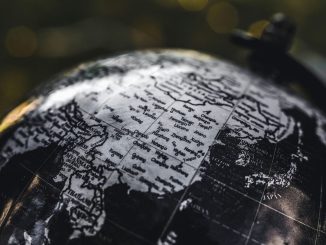
In this series, MBS professors deal with current political and social issues by critically questioning them and analyzing them with scientific arguments. The purpose is to promote a critical discourse both in society and at MBS.
The current situation clearly shows how government intervention in every area of the economy and life is becoming increasingly frequent. These are not only popular with politicians, who can thereby considerably increase their power and influence, but also many voters demand these interventions in order to be able to counter all imponderables of an increasingly complex world with a supposed bulwark.
The majority of (previous) interventions are not only justified, but necessary to enable a cooperative and respectful living together in society. This also applies to the economy, which, as can be read in any economic textbook, requires regulation at one point or another. An unregulated market leads to the emergence of market power and monopolies – structures such as we are currently seeing in many digital products – or to an undersupply of public goods. These are goods that are practically the opposite of private goods, since they neither show rivalry in consumption (the good can be used by many consumers at the same time without any loss of benefit for the individual), nor can anyone be excluded from using them, for example by an access barrier such as paying a price.
Categorization of goods
| excludable | not-excludable | |
| rival | private goods: mask, toilet paper | commons: environment |
| not-rival | club goods: Netflix | public goods: fireworks, safety |
One example of a public good is internal security, which in functioning societies is guaranteed by the police. Even though private security companies also protect people and property, it is hard to imagine that one company could do this for all inhabitants of a country (it would be more like a private good).
Since the market thus does not have a sufficient incentive to provide public goods, this is referred to as (allocative) market failure. This can well be seen as an economic justification for why we need and will always need the government, since only such an institution is able to correct these failures. In addition, there are many socially desirable goals to which it can contribute: educational equity, reduction of income inequality or social security (so-called distributive market failure). All these goals contribute to a functioning and efficient economy. In a pure market economy, the right of the strongest would ultimately apply, so that no one would want to live in such a society.
In addition to public goods, which are offered almost exclusively by the government, there is another good that can cause problems in an unregulated state: commons. These are municipal properties that the village community can access, for example pasture land or timber extraction rights in the Bavarian Alps. A problem arises when the available resources are overused (Hardin, 1968) – this leads to the so-called commons problem or, more dramatically, the “Tragedy of the Common”.
The commons problem can be well illustrated by the example of deep-sea fishing: The oceans and their resources outside the 7-mile zone are the property of mankind. That is, by no one. So you can fish there at will without worrying about sustainability. If a fisherman would decide to catch less fish in order to conserve the stocks, other fishermen would be happy to have more fish in their nets. Sustainability here simply means less sales. The operator of a private fish pond would of course see it completely different: He/she knows that if he/she catches all the fish today, the basis for business will be missing tomorrow.
Of course this dilemma can be overcome. For example, similar to OPEC, a deep-sea fishing cartel could be formed that allows its members only a certain quantity, selected in such a way that sales are still possible in the long term – and the shortage of fish would cause prices to rise and the cartel members could become rich, in other words a classic win-win situation. If it is also a morally acting society that can make sure that everyone sticks to the agreement (for which there are several possibilities), the fish and in the long run also the fish consumers would be helped and there would be one problem less. But of course such a deal would undermine the sovereignty of governments, which might not be socially desirable, since such a cartel would not be subject to any national law – perhaps it would be sustainable in terms of resource use, but less so in terms of occupational safety, socially acceptable pricing, etc.. However, the principle remains the same: there must be an institution that ensures that resources are handled sustainably. The state (or a supranational body such as the United Nations) can assume this role.
References:
Hardin, G. (1968): The Tragedy of the Commons, Science 162, pp. 1243-1248.
Did this catch your interest? Additional insights into the topic of government intervention will soon be provided by the live launch of the Transition Report 2020-21 "The State Strikes Back" by the European Bank for Reconstruction and Development (EBRD), followed by a panel discussion on November 10, 2020. Registration for the event via zoom is possible here.





